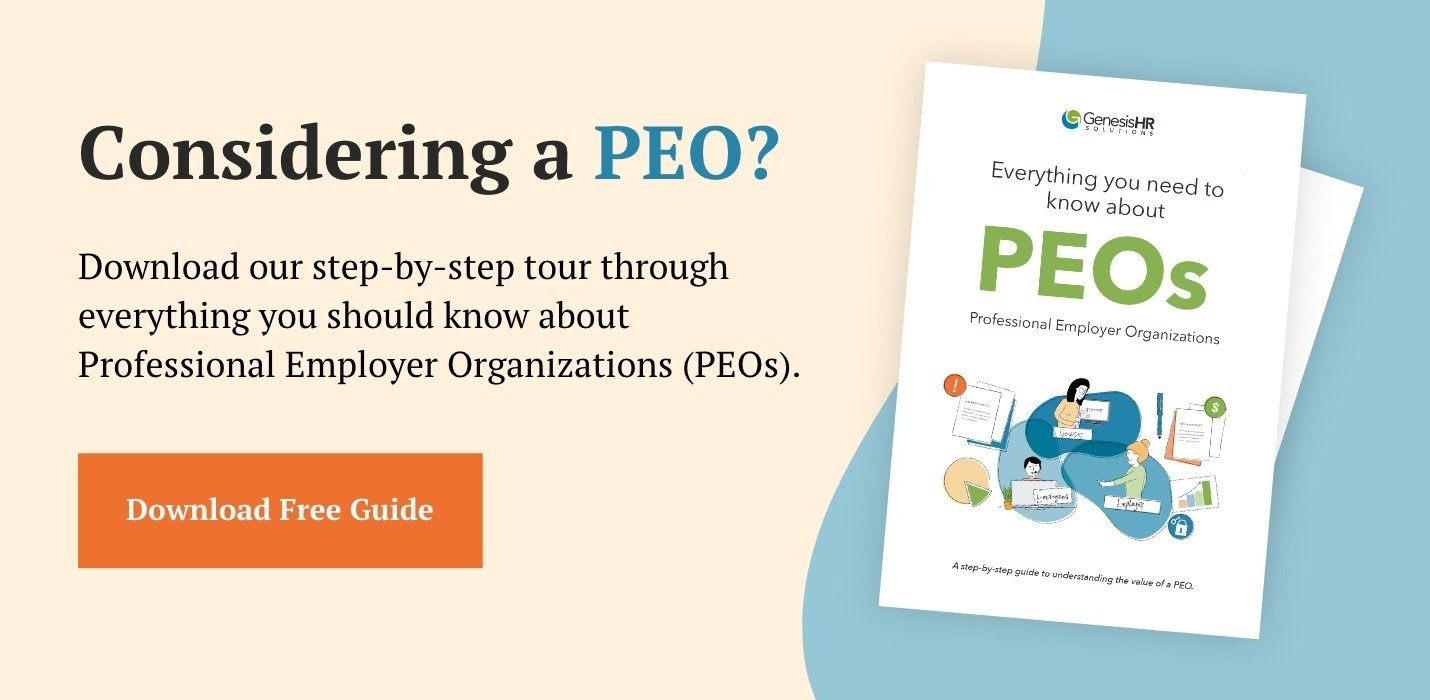Our payroll team works closely with HR to help clients understand their obligations and best practices regarding paid time off, sick leave, vacation leave, and similar benefits. Because laws for PTO come from the state level, it is important to understand your state’s requirements. Following are ten things employers in the Commonwealth need to know about Massachusetts PTO.
1. There is no single requirement or standard for PTO in Massachusetts. Commonwealth employers can choose to separate sick and vacation time into different accrual “buckets” for their employees, or they can bundle the time together into one bucket, called paid time off (PTO), which often accounts for both vacation and sick leave. Learn more in our article, Defining & Implementing PTO Accrual.
2. There are no “vacation time laws” in Massachusetts. Employers are not required to let employees accrue vacation time (although it is a sought-after benefit for both recruiting and retaining employees).
Need to create PTO policies but don’t know where to start? Learn best practices for structuring your PTO—plus get a free template to help you create your own policies.
3. Unused vacation time is considered wages. Employers should have written policy, and apply it consistently. They should give each worker a copy of the policy when the worker is hired, and ask the worker to acknowledge in writing that he or she understands the policy.
4. Massachusetts sick leave laws are the most stringent of Massachusetts PTO laws. You can learn more about earned sick time here.
5. Employers in Massachusetts are generally required to accrue sick time for all employees. All employee types (per diem, full time, part time, etc.) must accrue, at minimum, one hour for every 30 hours worked, up to 40 hours. This accrual is only for time worked, which means employers do not need to accrue sick time for jury duty, sick time, vacation, etc.—only hours worked. Some variants regarding sick time are:
- If your company has fewer than 11 employees: Employees must accrue sick time, but the time off can be taken without pay.
- If your company has 11 or more employees: Employers must accrue and pay employees for their sick time.
- If your company has a PTO policy instead of a separate sick leave policy, you can meet the requirements of the sick leave act by having a PTO policy that is more generous than the sick leave act.
6. Unused sick leave is not required to be paid out upon termination, and is not considered wages.
7. PTO is considered wages, and is payable to the employee upon termination, which would be an additional liability for Massachusetts employers who choose to use PTO instead of separate sick and vacation time. In Massachusetts, PTO is considered wages and is required to be paid out upon termination. You are required to pay out the entire accrued, unused balance, whether termination was voluntary or involuntary.
In Massachusetts, PTO is considered wages and is required to be paid out upon termination. Click To Tweet8. PTO is extremely challenging for clients to manage themselves. Managing PTO is complicated and time-consuming, especially when you don’t have the right tools at your fingertips to calculate and manage accruals. Many of our clients come to us with Excel spreadsheets they’ve been using to calculate accruals—they are so relieved when we take their policy and fine-tune it with our HR department to make sure it is written and managed appropriately for all employee types.
We remove the burden of manual accrual from your plate by putting the mechanism in place to track all time accrued and taken off automatically, so you can visualize and report on the numbers. Learn more about how it how it works here.
9. Doing PTO incorrectly or inconsistently could cost you. If employees think they can’t take the time they’ve accrued, or if their PTO balances are incorrect, they will be unhappy. People depend on their PTO benefits to live their lives—employee morale suffers when PTO isn’t managed properly.
From a compliance standpoint, unclear balance records or confusion about time off, accruals, and time taken mean you could be paying out the wrong PTO balance upon termination. That could ultimately cost you time and money in litigation. This is why it’s important to have accurate, clear records that show exactly what should be paid out, with dates, including the final pay period accrual.
10. Think long-term when creating your PTO policies. Throwing together PTO or sick leave policies ad-hoc can be costly. If you don’t know what you’re liable for, or you aren’t prepared to pay out the wages identified in the policies you’ve created, you may end up paying terminated employees a lot more money than you anticipated.
Similarly, poorly planned PTO policies may result in all of your employees trying to use up their balances at once—which means some requests may not be approved. Check out our article, How to structure your team’s Paid Time Off, for advice on how to avoid this scenario (and keep your employees happy).
Bonus Tip #11: If you need help getting started—or course correcting–the team of experts at Genesis HR can help you. A thoughtful, generous PTO policy should be a priority for your organization; after all, it is to your employees. At Genesis, we can help you create PTO policies that are generous and well-crafted—and mutually beneficial for both employer and employee. Contact us today to learn about how we will help you with PTO and all the other services we offer our clients.




